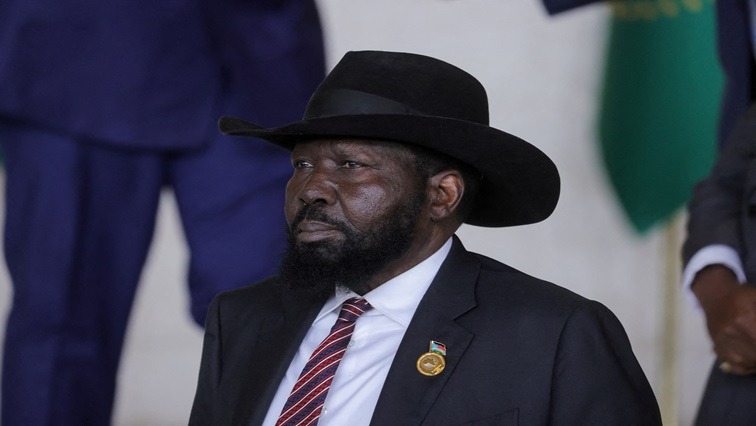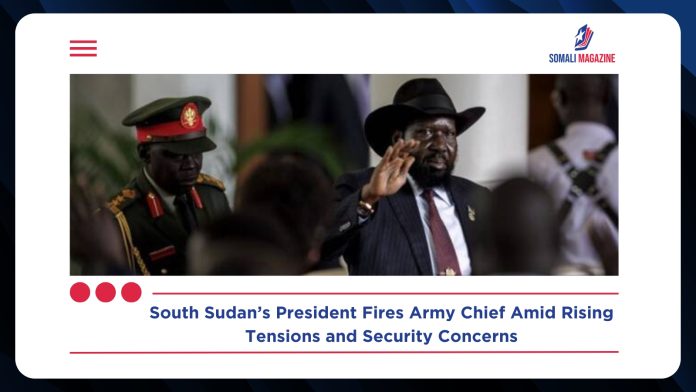Facebook Twitter (X) Instagram Somali Magazine - People's Magazine
South Sudan’s president fires army chief after seven months in post, a move that has stirred speculation about internal divisions and the country’s fragile security landscape ahead of the 2026 elections. President Salva Kiir dismissed General Paul Nang Majok late Monday via state radio, replacing him with veteran commander Dau Aturjong. No official reason was given for the abrupt change, in keeping with South Sudan’s tradition of opaque leadership reshuffles.
Majok, appointed in December 2024, had overseen the South Sudan People’s Defense Forces (SSPDF) during a volatile period marked by clashes with the White Army militia—a Nuer-led ethnic force accused of destabilizing the northeastern town of Nasir. His tenure coincided with the house arrest of First Vice President Riek Machar in March, a move that sparked fears of renewed conflict and drew international concern.
Army spokesperson Major General Lul Ruai Koang downplayed the dismissal, stating, “It is customary here—no reasons are given when officers are appointed or relieved. It is normal.” However, analysts suggest the timing of Majok’s removal may reflect deeper political tensions within the ruling coalition, especially as the government struggles to maintain peace in the face of recurring ethnic violence.
The White Army, which has clashed repeatedly with government forces, is suspected of receiving backing from Machar’s allies—a claim his party denies. In May, the SSPDF recaptured Nasir from the militia, but the fighting underscored the persistent volatility in regions that were supposed to be pacified under the 2018 peace agreement.

Majok’s departure also follows a series of high-level changes within Kiir’s administration. In the same set of decrees, the president reappointed Gola Boyoi Gola as chief administrator of the Greater Pibor Administrative Area and made new appointments to the Civil Aviation Authority and the agriculture ministry. These moves suggest a broader reshuffling of power as Kiir consolidates control ahead of the national vote.
General Dau Aturjong, Majok’s successor, is a seasoned military figure with deep ties to the SPLA legacy and a reputation for loyalty to Kiir. His appointment is seen as a strategic effort to stabilize the army and reinforce command structures amid growing uncertainty.
South Sudan has been formally at peace since the 2018 agreement ended a five-year civil war that claimed hundreds of thousands of lives. Yet, violence between rival communities continues to flare, and political friction remains high. The arrest of Machar and the government’s accusations of rebellion have raised alarms among diplomats and peace monitors, who fear the country could slide back into conflict.
The United Nations and regional bodies have urged South Sudan’s leaders to uphold the peace deal and ensure a credible electoral process. However, the lack of transparency in military appointments and the ongoing suppression of dissent cast doubt on the government’s commitment to democratic norms.
As South Sudan navigates a delicate transition, the firing of Majok may be more than a routine reshuffle—it could be a signal of shifting alliances and a recalibration of power within the military establishment. Whether Aturjong’s leadership will bring stability or further entrench factionalism remains to be seen.

